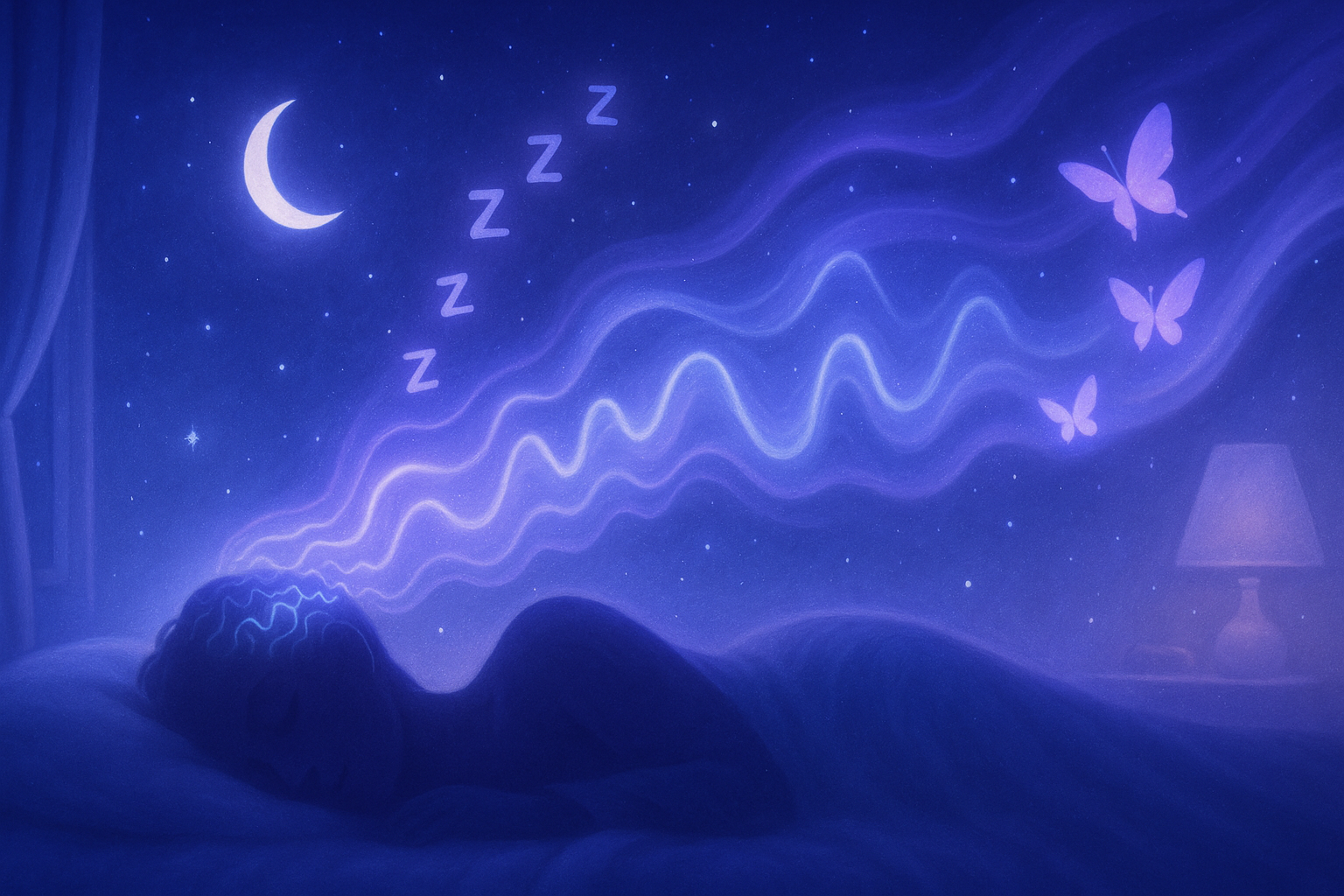
The Bidirectional Relationship
Sleep and mental health share a profound bidirectional relationship—poor sleep can trigger or worsen mental health issues, while mental health conditions often disrupt sleep patterns. This intricate connection affects millions worldwide, with research showing that 50-80% of psychiatric patients experience chronic sleep problems compared to 10-18% of the general population.
Scientific Finding: A Harvard Medical School study found that treating sleep disorders in patients with depression increased their response to treatment by 87%, highlighting sleep's critical role in mental health recovery.
Understanding this relationship is crucial for anyone seeking to improve their mental well-being. Quality sleep isn't just about feeling rested—it's fundamental to emotional regulation, cognitive function, and psychological resilience.
The Science of Sleep and Mental Health
What Happens During Sleep
Sleep is an active neurological process involving distinct stages, each crucial for mental health:
- NREM Stage 1-2 (Light Sleep): Brain wave activity slows, preparing for deep sleep
- NREM Stage 3 (Deep Sleep): Critical for physical restoration and memory consolidation
- REM Sleep: Essential for emotional processing, learning, and mental health
Neurochemical Changes
During sleep, your brain undergoes crucial processes:
- Toxin Clearance: The glymphatic system removes beta-amyloid and other waste products
- Neurotransmitter Regulation: Serotonin, dopamine, and norepinephrine levels reset
- Cortisol Reduction: Stress hormone levels decrease, allowing recovery from daily stressors
- Memory Consolidation: Experiences are processed and stored appropriately
Key Insight: REM sleep deprivation specifically impairs the brain's ability to process emotional experiences, leading to increased reactivity to negative stimuli and decreased ability to recognize positive emotions.
Common Sleep Disorders and Mental Health
Insomnia
Affecting 30% of adults, insomnia is both a symptom and a risk factor for mental health conditions:
- 73% of people with depression experience insomnia
- Chronic insomnia increases depression risk by 10-fold
- Cognitive Behavioral Therapy for Insomnia (CBT-I) improves both sleep and mood
Sleep Apnea
This breathing disorder affects mental health through:
- Oxygen deprivation leading to brain inflammation
- Fragmented sleep preventing emotional processing
- Associated with 2.5x higher depression rates
Circadian Rhythm Disorders
Misaligned sleep-wake cycles impact:
- Mood regulation (increased risk of seasonal affective disorder)
- Cognitive performance and attention
- Social functioning and relationship quality
Important: If you suspect you have a sleep disorder, consult a healthcare provider. Many sleep disorders are treatable, and addressing them can significantly improve mental health outcomes.
Nutrition and Sleep Quality
Foods That Promote Sleep
- Tryptophan-rich foods: Turkey, eggs, cheese, salmon, nuts, seeds
- Magnesium sources: Leafy greens, avocados, dark chocolate
- Complex carbohydrates: Whole grains, oatmeal, sweet potatoes
- Melatonin-containing foods: Tart cherries, grapes, tomatoes
- Herbal teas: Chamomile, passionflower, valerian root
Foods and Substances to Avoid
- Caffeine: Found in coffee, tea, chocolate, some medications
- Alcohol: Disrupts REM sleep and causes fragmented sleep
- Heavy meals: Can cause discomfort and acid reflux
- High sugar foods: Cause blood sugar spikes and crashes
- Excessive fluids: Lead to nighttime bathroom trips
Study Finding: Mediterranean diet adherence is associated with 35% better sleep quality and 25% lower risk of insomnia, according to a 2020 meta-analysis.
Cognitive Techniques for Better Sleep
Progressive Muscle Relaxation
This technique reduces physical tension and mental anxiety:
- Start with your toes, tense for 5 seconds
- Release and notice the relaxation for 15 seconds
- Move upward through each muscle group
- End with whole-body relaxation
The 4-7-8 Breathing Technique
- Inhale through nose for 4 counts
- Hold breath for 7 counts
- Exhale through mouth for 8 counts
- Repeat 3-4 times
Cognitive Restructuring
Challenge sleep-related anxious thoughts:
- Identify catastrophic thoughts ("I'll never fall asleep")
- Examine evidence for and against
- Develop balanced thoughts ("Sleep will come when I'm ready")
- Practice acceptance of occasional poor sleep
Technology and Sleep: Finding Balance
The Blue Light Problem
Electronic devices emit blue light that suppresses melatonin production by up to 55%. Solutions include:
- Blue light blocking glasses (wear 2-3 hours before bed)
- Device settings (Night Shift, f.lux, or similar)
- Reducing screen brightness
- Using warm lighting in evening hours
Sleep Technology That Helps
- Sleep tracking apps: Monitor patterns and identify issues
- White noise machines: Mask disruptive sounds
- Smart lights: Gradual wake-up simulation
- Meditation apps: Guided sleep meditations
- Sleep cycle alarms: Wake during lighter sleep phases
Pro Tip: Create a "charging station" outside your bedroom for all devices. This simple change can improve sleep quality by 23% according to Stanford research.
When to Seek Professional Help
Consider consulting a sleep specialist or mental health professional if you experience:
- Chronic insomnia lasting more than 3 months
- Loud snoring or gasping during sleep
- Daytime fatigue despite adequate sleep opportunity
- Sleep problems significantly impacting daily life
- Worsening mental health symptoms related to sleep
Remember: Sleep medications should be used cautiously and under medical supervision. They're typically recommended for short-term use only, as they can mask underlying issues and create dependency.
